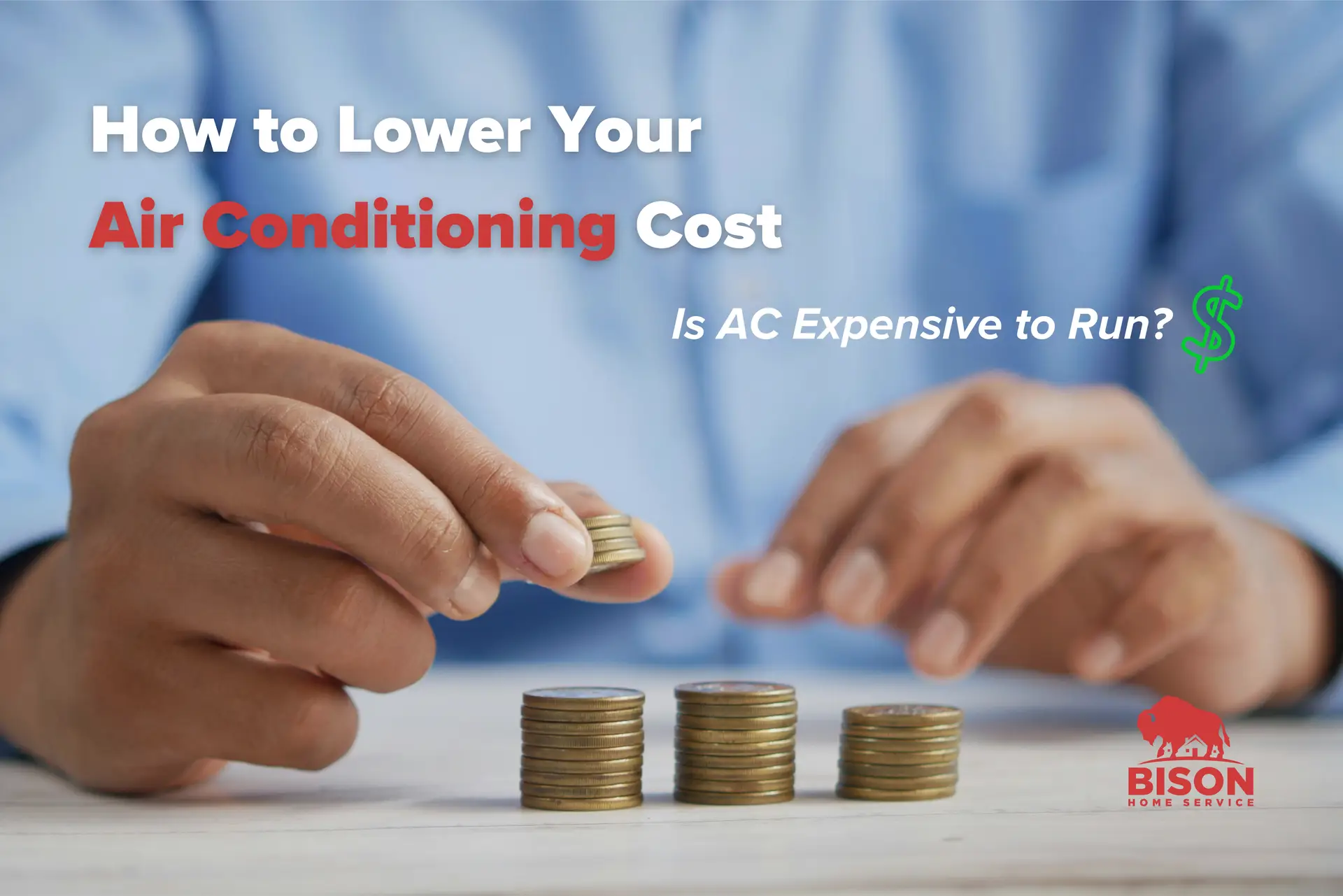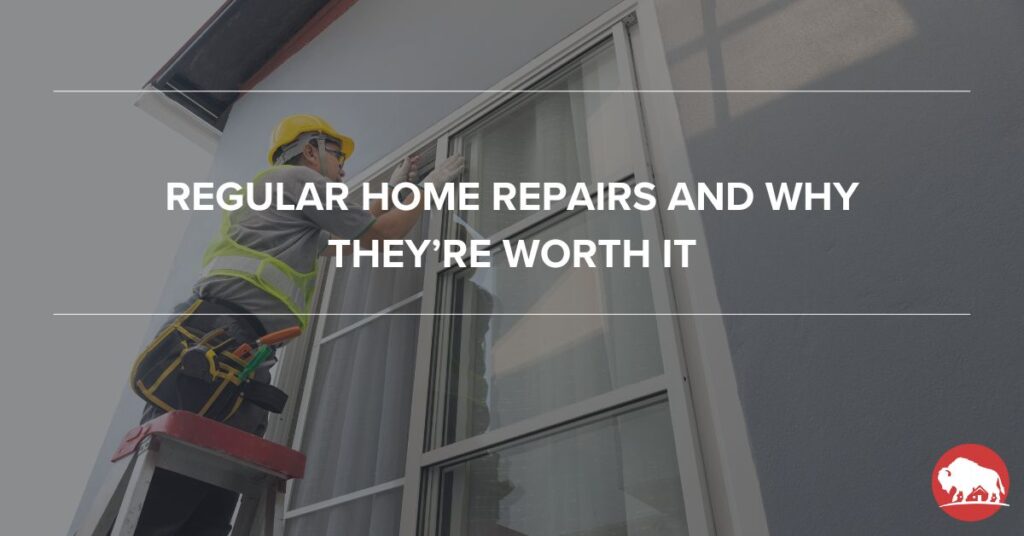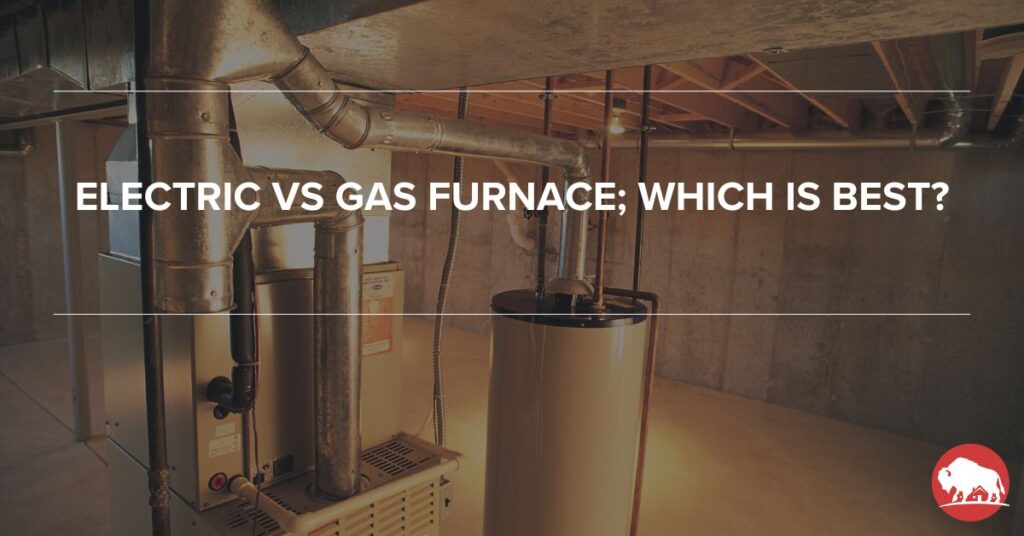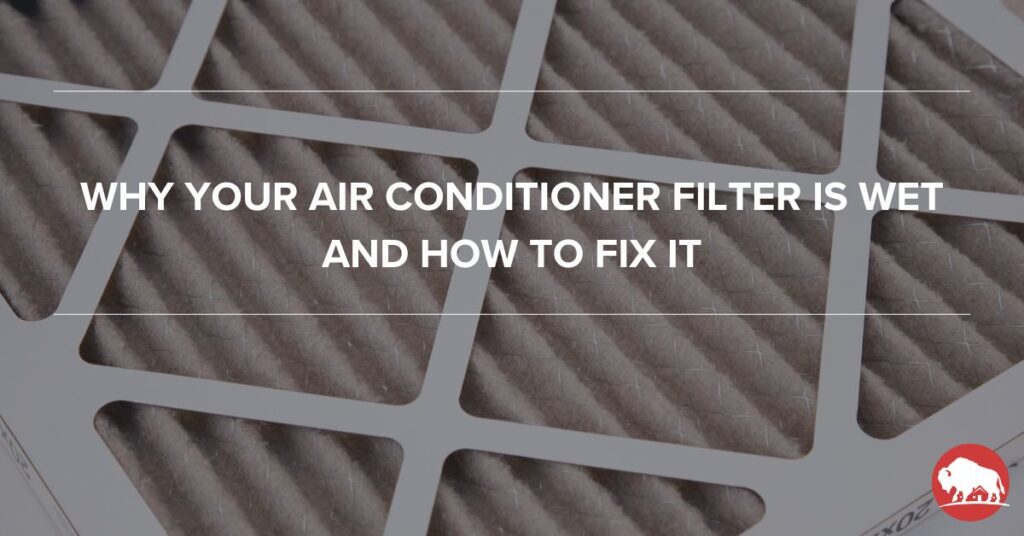Is AC Expensive to Run?
When the heat of summer hits, air conditioners become our best friends. But a common question many people have is, “How do I lower my air conditioning cost?” We’ll break down the costs associated with running an air conditioner, factors that influence these costs, and provide tips to make your AC more efficient. It is possible to keep cool without draining your wallet and there are tons of ways to create an energy-efficient home on a budget!
Understanding Air Conditioner Cost
Initial Purchase and Installation Cost
The first expense you’ll encounter with an air conditioner is the initial purchase and installation. The cost varies based on the type of unit:
- Window Units: These are typically less expensive, ranging from $150 to $600. Window units are generally suitable for cooling single rooms or smaller spaces and they are easy to install and can be a cost-effective solution if you need cooling in just one area.
- Central Air Conditioning Systems: These are more costly, usually between $2,500 and $7,500, including installation. Central air conditioning systems are designed to cool entire homes, offering a much better solution for larger spaces. While the upfront cost for central air conditioning is higher, it can be more efficient for cooling larger homes because it distributes cool air evenly throughout the house.
The cost of installation can vary based on factors like the complexity of the installation, the size of your home, and whether you need to update your electrical system to accommodate the new unit. Although central air systems have a higher initial cost, they offer better long-term value, especially if you plan to stay in your home for many years.
Ongoing Electricity Usage Cost
Electricity usage is the real factor in whether air conditioners are expensive to run. This usage is measured in kilowatt-hours (kWh). How much electricity your AC uses depends on its size, efficiency, and how often it’s running.
- Central Air Conditioning Systems: Might use about 3,000 kWh during a typical cooling season, costing around $300 to $500 depending on local electricity rates. Central air systems generally have a higher capacity and can cool larger spaces more effectively, but this also means they consume more electricity.
- Window Units: Being smaller, they use less electricity, typically costing between $50 and $150 for the season. Window units are more energy-efficient for smaller spaces but can be less effective for larger areas, which might require multiple units to achieve the desired cooling effect (this cost adds up quick!).
Electricity rates vary by location, so the actual cost to run your air conditioner can differ significantly depending on where you live. The frequency and duration of AC use will impact your electricity bill the most. Running the AC constantly, especially at lower temperatures, will result in higher costs.
Maintenance Costs
Regular maintenance is essential to keep your air conditioner running efficiently. Without it, you will end up buying a new AC unit far too often! This includes:
- Changing Filters: This should be done every one to three months. Dirty filters can reduce airflow and make the system work harder, increasing energy usage and costs.
- Cleaning Coils and Checking Refrigerant Levels: Usually performed during annual maintenance. Clean coils and the correct refrigerant levels ensure that your air conditioner operates efficiently and cools your home effectively.
Maintenance costs can range from $75 to $200 annually, but they help prevent costly repairs and keep your system running efficiently. Neglecting maintenance can lead to decreased efficiency, higher energy bills, and potential breakdowns that require expensive repairs. It’s a bit of a pain, but keeping your AC maintained will save you loads of money in the future.
Factors Affecting Air Conditioning Cost
There are so many factors that influence expensive air conditioner cost. There are some situations you just can’t get around, and will need to run your AC for. But knowing these factors may help you understand why your bill is so high!
Unit Size and Efficiency
The size of your air conditioner should match the size of your space. An undersized unit will work harder and use more electricity, while an oversized unit will cycle on and off too frequently, which is inefficient. So spend a little bit more on the right-sized air conditioner for your house, and save money in the long run. Efficiency is measured by:
- Seasonal Energy Efficiency Ratio (SEER): For central air systems. SEER ratings measure the cooling output during a typical cooling season divided by the total electric energy input. Higher SEER ratings indicate more efficient systems.
- Energy Efficiency Ratio (EER): For window units. EER ratings measure the cooling capacity of the air conditioner divided by its power consumption. A higher EER means better efficiency.
Higher SEER or EER ratings mean better efficiency (i.e. saving you money). Investing in a high-efficiency unit can reduce operating costs over time. While these units might have a higher upfront cost, the savings on your energy bills can offset this over the lifespan of the unit.
Usage Patterns
How often and how long you run your air conditioner directly affects your electricity bill. Running the AC continuously, especially at lower temperatures, will result in higher costs. Setting the thermostat to a higher temperature when you’re not home can save energy. Additionally, using the AC more during off-peak hours can sometimes reduce costs, depending on your electricity provider’s rate plan.
Smart thermostats can help manage your AC usage more efficiently by learning your schedule and adjusting the temperature automatically. This not only saves energy but also maintains a comfortable indoor environment.
Local Climate
Your local climate plays a huge role in air conditioning cost. In hotter climates, air conditioners run more frequently and for longer periods, increasing energy usage and costs. In milder climates, the need for air conditioning is less frequent, leading to lower costs.
The duration of the cooling season and the average temperatures during that period will heavily influence your energy consumption. For example, in areas with long, hot summers, the AC might be in use for several months, whereas in cooler regions, it might only be necessary for a few weeks.
Tips to Reduce Air Conditioning Cost
There are many ways to keep cool while reducing the cost of running your air conditioner. Of course, we all want the AC to run all the time, but implementing even a few of these tips will help your air conditioning cost significantly.
Regular Maintenance
Keep your air conditioner in tip-top shape with regular maintenance. Clean or replace filters every one to three months, clean the coils, and make sure there are no obstructions around the unit. A well-maintained system runs more efficiently and uses less energy. Scheduling annual professional AC Check-Ups can help identify and address any potential issues before they become major problems.
Proper maintenance not only improves efficiency but also extends the lifespan of your air conditioner, providing better long-term value.
Use a Programmable Thermostat
Investing in a programmable thermostat allows you to set the temperature based on your schedule. You can set the thermostat higher when you’re not home and lower it before you return. This can significantly reduce energy usage and costs.
Advanced thermostats, like smart thermostats, can learn your habits and adjust settings automatically for optimal energy savings (yep AI is taking over). They can also be controlled remotely via smartphone apps, giving you the flexibility to adjust temperatures even when you’re not home.
Improve Home Insulation
Good insulation helps keep cool air inside and hot air outside. Make sure your home is well-insulated, including the walls, attic, and floors. Sealing windows and doors can also prevent cool air from escaping and warm air from entering.
Insulating your home properly reduces the amount of work your air conditioner needs to do to maintain a comfortable temperature. This not only lowers energy costs but is also way more comfortable!
Use Ceiling Fans
This may be the most obvious tip. Ceiling fans can help circulate cool air more effectively, allowing you to set the thermostat a few degrees higher without sacrificing comfort. Fans use less electricity than air conditioners which can save you a good amount of money in the long run.
Using fans in conjunction with your air conditioner can create a wind-chill effect, making you feel cooler without actually lowering the temperature. This is a simple yet effective way to get comfortable while reducing air conditioning cost.
Close Curtains and Blinds
During the hottest parts of the day, close curtains and blinds to block out direct sunlight. I know, we all want to look outside on those beautiful days, but if you are looking to save a few dollars, close those curtains. This reduces the amount of heat entering your home, helping to keep it cooler and reducing the workload on your air conditioner.
Consider using blackout curtains or reflective window films for even better heat reduction (blackout curtains are also THE BEST to sleep in). These can significantly lower the amount of heat that gets in your home, easing the demand on your air conditioning system.
Upgrade to an Energy-Efficient Unit
If your air conditioner is old, consider upgrading to a newer, more energy-efficient model. Modern units with higher SEER or EER ratings use less electricity and can lower your cooling costs significantly.
Energy-efficient models are designed to provide optimal cooling with minimal energy consumption. Although the initial investment might be higher, the long-term savings on your energy bills can make it a worthwhile upgrade.
Debunking Common Air Conditioning Cost Myths
There are tons of myths about air conditioning and how to lower your electricity bill. Let’s debunk a few of them.
Myth: Lowering the Thermostat Cools Your Home Faster
Setting the thermostat to a very low temperature doesn’t cool your home any faster. It just keeps the air conditioner running longer. Set the thermostat to your desired temperature and be patient.
The cooling process works at a steady rate, and setting a lower temperature does not speed it up. Instead, it can lead to overcooling and unnecessary energy usage.
Myth: Leaving the AC on All Day is Cheaper
Some believe that leaving the air conditioner running all day is cheaper than turning it off and on. However, it’s more efficient to turn the AC off when you’re not home and use a programmable thermostat to cool the house before you return.
Turning the AC off when it’s not needed saves energy and reduces wear and tear on the unit, leading to lower maintenance costs and a longer lifespan.
But…
There are some situations in extreme heat where it would be better for the AC to run all day so your unit does not need to catch up 10 degrees when you get home. Catching up each day in a very hot summer would put more wear and tear on the AC unit than letting it run comfortably at the same temperature throughout the day. Keep this in mind for cities with scorching hot weather!
Myth: Bigger Units Are Better
An oversized air conditioner isn’t better. It cools the space quickly but cycles on and off frequently, which is inefficient and leads to higher costs
Summary
So, are air conditioners expensive to run? The answer depends on SO many factors such as the type and size of the unit, local electricity rates, and how often it’s used. While air conditioning can be a significant expense, there are so many ways to reduce costs and improve efficiency. Many of these concepts also apply to winter. We cover 5 Ways to Save Money on your Heating Bill in a separate blog post, as well as HVAC financing options
Regular maintenance, smart usage patterns, good home insulation, and investing in energy-efficient models can help keep your cooling bills manageable.
None of us want to live without air conditioning, so we need to find a way to make it a bit cheaper. By understanding the factors that affect air conditioning costs and implementing energy-saving strategies, you can stay cool and comfortable without breaking the bank. Stay cool, save money, and enjoy your summer!






